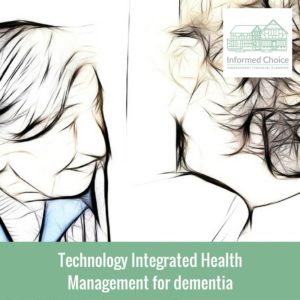 There are around 850,000 people in the UK living with dementia.
There are around 850,000 people in the UK living with dementia.
This number is expected to rise to one million by 2025, with a rising number of people living with dementia as a result of increased longevity.
As a firm of Chartered Financial Planners working with people in retirement and elderly people who need long-term care, dementia is an area we like to understand.
We like to keep abreast of major developments in the treatment of dementia as well as ways to help people live well with dementia.
Technology Integrated Health Management (TIHM) for dementia is a major new research study funded and monitored by NHS England and Innovate UK.
People living with dementia in Surrey and Hampshire look set to benefit from a £5m trial based on this cutting edge technology.
It will involve 1,400 people living with dementia, testing how the technology placed in people’s homes could be used to improve their lives and also benefit their carers.
The two year ‘Internet of Things’ Test Bed is being led by Surrey and Borders Partnership NHS Foundation Trust.
This study will potentially deliver fundamental change to future dementia care.
TIHM for dementia is one of only seven NHS Innovation Test Beds, and is one of two specifically looking at creating an Internet of Things; the idea of connecting any device to the Internet and/or each other via the Internet.
The Test Bed programme was launched by NHS England in January 2016 as a series of different projects that aim to modernise health care to benefit older people with long-term health problems and improve the way NHS services are delivered by evaluating the impact of new technologies.
It is linked to the NHS Five Year Forward View which sets out how health services need to change in order to engage with patients, carers and citizens to promote wellbeing and prevent ill-health.
Technology innovators have joined the partnership to demonstrate how the use of devices, such as monitors and wearables, which are being trialed in the homes of people with dementia, have the potential to help them live well and remain in their homes for longer.
The hope is to reduce bed stays, care home admissions and carer burnout – which is one of the key reasons that people with dementia are admitted to hospital.
The Test Bed will focus on finding an interoperable solution that will allow the technologies to speak a common language.
Continuous monitoring and observation data will be translated into real-time insights and alerts that provide actionable information for health and care teams and carers.
Unique patterns will be identified and the improved information will support better and faster decision making.
Professionals and carers will be alerted to potential concerns at an earlier stage. For example, by identifying the relationship between room temperature and hydration they can react accordingly.
The objectives of this study include providing people living with dementia more control over their health and wellbeing, increase their ability to live independently, and improve the quality of their life and their carers, through the use of technology.
We look forward to seeing the results of this study and how it helps people living with dementia, and their carers, and better understanding how technology can benefit other long-term physical and mental health conditions.

